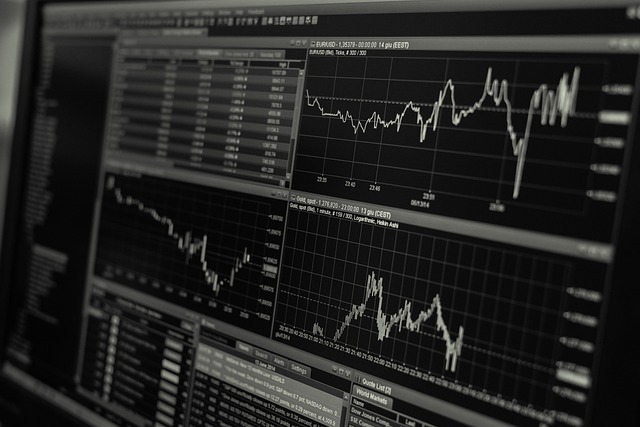Is Future Trading Halal or Haram in Shia Islam? An In-Depth Analysis
Author: Jameson Richman Expert
Published On: 2025-09-26
Prepared by Jameson Richman and our team of experts with over a decade of experience in cryptocurrency and digital asset analysis. Learn more about us.
Future trading, commonly known as derivatives trading or the trading of futures contracts, has become an integral part of contemporary financial markets worldwide. It offers traders and institutions mechanisms for risk management, investment diversification, and profit generation. However, within the context of Shia Islamic jurisprudence, the permissibility of engaging in such financial activities is subject to rigorous scrutiny rooted in core Islamic principles. This comprehensive analysis aims to elucidate the fundamental theological, legal, and ethical considerations that determine whether futures trading aligns with or contradicts Islamic ethics from a Shia perspective. It explores the structural composition of futures contracts, examines scholarly opinions, and discusses contemporary innovations and debates, providing criteria for responsible and Shariah-compliant participation in modern financial markets.

Fundamental Shariah Principles Governing Financial Transactions
Islamic finance is governed by a set of stringent ethical and legal principles aimed at ensuring justice, social equity, and moral integrity. The primary prohibitions and guidelines include:
- Riba (Interest): Riba, often translated as usury or interest, is categorically forbidden because it leads to unjust enrichment and exploitation. Its prohibition seeks to promote equitable wealth distribution and prevent the concentration of wealth in the hands of a few at the expense of others.
- Gharar (Excessive Uncertainty): Gharar refers to excessive ambiguity or uncertainty in contractual terms. Transactions characterized by high gharar are deemed invalid because they can facilitate deception, unjust enrichment, and destabilization of economic activity. Ensuring clarity and transparency is fundamental for lawful transactions.
- Maysir (Gambling): Activities resembling gambling or chance-based speculation are considered haram, as they promote social harm and undermine productive economic activity. Maysir fosters greed and risk-taking without real economic backing, which is antithetical to Islamic economic principles.
Beyond these prohibitions, core principles such as adalah (justice), tawadhu (humility), transparency, and risk-sharing underpin Islamic financial dealings. Transactions must promote fairness, involve real economic activity, and avoid exploitation or unjust enrichment. These principles aim to foster a financial system grounded in morality, equity, and social responsibility, aligning economic activity with Islamic ethics.
The Mechanics of Futures Contracts and Their Ethical Evaluation in Shia Islam
Futures contracts are legally binding agreements where two parties commit to buy or sell an underlying asset at a predetermined price on a specified future date. These financial instruments are inherently versatile, employed for hedging against price volatility and for speculative endeavors. To evaluate their permissibility within Shia Islam, a detailed examination of their structural features and underlying principles is essential:
- Actual Ownership and Possession: A key criterion in Islamic finance is the requirement of actual ownership or possession of the underlying asset at the time of entering the contract. Many scholars argue that futures, which often involve contracts without actual transfer or possession of the underlying asset at inception, resemble speculative gambling rather than genuine trade. Contracts involving physical delivery of tangible assets—such as commodities, real estate, or other goods—are more aligned with Islamic standards.
- Economic Purpose and Necessity: Transactions should serve authentic economic needs—such as risk mitigation for producers, consumers, or investors—rather than purely speculative motives. Engaging in futures solely to profit from price fluctuations without underlying economic activity contravenes Islamic economic ethics.
- Clarity and Transparency (Bayan): Contractual terms must be explicit, unambiguous, and transparent to all parties involved. Clear definitions of rights, obligations, and conditions prevent gharar and foster trustworthiness, which are critical in Islamic transactions.
- Prohibition of Riba and Exploitative Conditions: The contract must be free from interest-based arrangements or exploitative clauses that violate Islamic prohibitions and ethical standards.
In conventional markets, futures often fail to meet these criteria because they predominantly serve speculative interests, involve high degrees of gharar, and sometimes lack underlying assets or tangible ownership. Conversely, Islamic financial institutions are innovating structured derivatives that are compliant with Shariah, emphasizing real economic backing, risk-sharing, and ethical standards. These products aim to avoid unethical features seen in conventional futures, such as excessive speculation and uncertainty, through mechanisms like asset-backed structures and transparent contractual terms.
Shia Scholarly Perspectives on Futures Trading
Within Shia jurisprudence, the stance on futures trading is characterized by caution, thoroughness, and adherence to Islamic ethical principles. Scholars emphasize the importance of justice, honesty in ownership, and transparency, resulting in nuanced rulings:
- Most scholars categorize conventional speculative futures—especially those lacking real ownership or delivery—as haram. The resemblance to gambling, the absence of tangible backing, and the potential for unjust enrichment justify this prohibition.
- Futures contracts involving genuine ownership, possession, or the ability to deliver—such as those based on commodities, land, or other tangible assets—are more likely to be considered permissible if they serve legitimate purposes like hedging or risk management, provided they adhere to ethical standards.
- Contracts designed solely for speculative gains without underlying assets or economic necessity are condemned for violating the prohibitions against gharar, maysir, and injustice.
- Clarity, fairness, and avoidance of exploitation are emphasized as essential conditions for legitimacy in futures contracts.
The fatawa (religious edicts) within the Shia tradition generally oppose the practice of conventional futures trading unless it strictly complies with these principles. The emphasis remains on preventing transactions resembling gambling, ensuring real economic backing, and safeguarding justice and transparency. The jurisprudence discourages speculative practices that can foster greed, social harm, and injustice, aligning with the broader Islamic ethical framework.

Practical Recommendations for Shia Muslims Engaging in Financial Markets
For devout Shia Muslims seeking to participate ethically in modern financial markets, the following guidelines are crucial:
- Seek Scholarly Guidance: Regular consultation with qualified Islamic scholars specializing in Islamic finance and jurisprudence is essential. They can provide nuanced, context-specific rulings on complex financial products and structures.
- Utilize Shariah-Compliant Platforms: Engage with trading platforms and financial institutions that offer Islamic accounts or derivatives designed to adhere to Shariah principles. Such platforms often have dedicated Shariah boards that oversee product compliance.
- Prioritize Ownership and Asset Backing: Engage only in transactions where you acquire, or will acquire, actual assets, reducing exposure to speculative risks and gharar. Asset-backed transactions uphold the Islamic emphasis on real economic activity.
- Avoid Excessive Gharar and Maysir: Ensure contractual clarity, fairness, and transparency. Avoid products that involve high uncertainty, chance-based elements, or ambiguity, which could lead to unethical outcomes.
- Invest Ethically and Responsibly: Focus on sectors and companies that promote social good and avoid Haram industries such as alcohol, interest-based banking, gambling, or weapons manufacturing. Responsible investing aligns with Islamic values of social justice and moral integrity.
Innovations in Shariah-Compliant Financial Products
The rapid development of Islamic finance has led to innovative structures designed to align with Shariah principles while meeting market demands. Notable products include:
- Sukuk (Islamic Bonds): Structured to provide returns without interest, often backed by tangible assets and designed to share risk fairly among investors, consistent with Islamic risk-sharing principles.
- Islamic ETFs and Mutual Funds: Focused on halal sectors, these funds promote ethical investing, social responsibility, and economic justice.
- Structured Derivatives Based on Real Assets: Engineered to incorporate risk-sharing mechanisms, minimizing gharar and maysir, and supporting genuine hedging strategies.
- Emerging Digital Assets and Cryptocurrencies: When developed on blockchain technology with Shariah validation, these can offer new avenues for compliant investing, provided they adhere to ethical and transparency standards.
Leading platforms like Binance, Mexc, Bitget, and Bybit now offer Shariah-compliant trading options, but investors must exercise due diligence and consult scholars to verify compliance. As the field evolves, ongoing scholarly engagement is critical for navigating emerging products and technological advancements in Islamic finance.
Conclusion: The Verdict on Futures Trading in Shia Islam
The permissibility of futures trading within Shia Islam fundamentally depends on its structural design, purpose, and the underlying assets involved. Conventional speculative futures—particularly those lacking real ownership, involving significant gharar, and pursued solely for profit—are predominantly considered haram due to their resemblance to gambling, potential for injustice, and speculative nature.
Conversely, futures contracts that are backed by tangible assets, serve legitimate hedging or risk mitigation purposes, and are executed with transparency, fairness, and ethical intent—aligned with risk-sharing principles—may be permissible under strict conditions. These include ensuring clarity, avoiding excessive gharar, and promoting real economic activity.
Muslims are encouraged to seek continuous guidance from qualified scholars, utilize Shariah-compliant financial products and platforms, and remain vigilant regarding innovations and scholarly debates in this dynamic field. Responsible, ethical investing that promotes social justice, economic equity, and moral integrity remains the overarching goal, consistent with the teachings of Shia Islam.
By adhering to these principles, Muslims can ethically navigate the complexities of modern financial markets while upholding the core values of justice, transparency, and social responsibility integral to their faith.